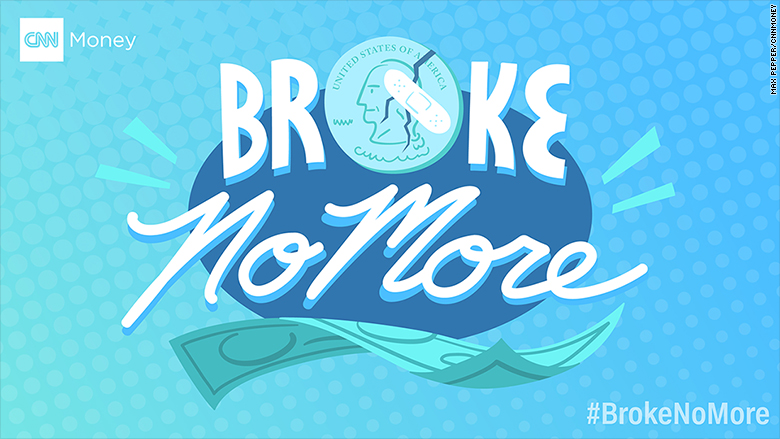
"How do I calculate the earliest possible date I can retire -- my "take this job and shove it!" date -- beyond which working is my choice and earnings are gravy?" --Jason, New York
Like Jason, many of us are counting down to the day we can say "shove it!" to a job we hate and pursue our own interests. But most people wrongly assume that day won't come until our 60s or 70s. Lots of people are taking the concept of "early retirement" to new extremes by becoming financially independent in their 50s, 40s, or even 30s.
While the concept of "retirement" may sound boring to some people, early retirement guru Brandon of the Mad Fientist blog prefers to call it "freedom."
"Retirement makes you think of [old people] moving to Florida," he says. "But really, retirement is freedom. Freedom to do what you want to do with your time, freedom from jobs you don't like, freedom from bosses you don't like."
Brandon, who only uses his first name for privacy reasons, is part of an online movement of early retirement enthusiasts who preach that retirement is attainable for anyone at almost any age. It's just a matter of calculating how much it costs for you to live, and saving up enough to support yourself for the rest of your life.
First, understand the math
There are many schools of thought on how to calculate your number, depending on your spending and age.
"Traditional late-retirement advice aims to maximize lifetime consumption and what people therefore look at is either saving a million dollars or saving 10-15% of all income over some 40 years on the job," explains Jacob Lund Fisker, author of the book and website Early Retirement Extreme.
But for those who want to retire much sooner than age 65, he says, that conventional advice does not apply.
"The goal [for early retirement] is to save 25-35 times one's annual expenses. Once this goal is reached, one is financially independent and working is a choice."
The early retirement rule is simple: For every $1,000 you spend a year, you need to invest $25,000 to $35,000.
The more money you save, the more you'd have to spend. Similarly, and key to many young retirees, the less money you spend each year, the less you have to save and the sooner you can retire.
This breaks down to spending, Fisker says. "The easiest way to find $1,000/year in the budget is to start the few largest expenses -- namely, housing, driving, and eating. It's easier to make a few decisions about a few big items than constantly make decisions about many small items."

But how do you make the money last for decades? A common rule of thumb is what's known as the "4% rule." "This equation multiplies your spending by 25 to give you how much you need to save. If you need $40,000 per year, multiply that by 25 a year, you get a million bucks," explains Fisker, "$40,000 is 4% of a million."
But that assumes your money consistently earns at least 4% a year. Some experts think the rule is flawed and could cause some early retirees to run out of money.
Fisker takes an even more conservative approach with his equation: Annual expenses should be less than 3% of your invested savings. So for that same $40,000 a year in income, you'd need $1.3 million invested. (Fisker also has other tips on calculating how much money you need to retire.)
And of course, it never hurts to start planning early.
"Less than a decade of delayed retirement savings can cost someone $1 million in forgone savings," says financial adviser Barbara O'Neill. "People who start saving at age 34 and accumulate $1 million at age 67 could have saved $2 million had they started at age 25, assuming an 8% average annual return."
Or, they could have just retired much sooner.
Second, figure out when you'll get there
So now that you have a general idea of the amount you need to call it quits, it's time to figure out how long it'll take you to get there.
A million dollars may seem like a big number, but the more you can save, the faster you'll reach your goal. Say you're 25 and you want to retire by 45. Investing $1700 a month will get you to a million in 20 years, assuming an 8% return. Too steep? Learn to live on less and you won't need a full million. Or be less ambitious about your retirement age. Saving $675 a month will get you there by age 55. This CNNMoney calculator can help you figure out how long it'll take.
Or try the FI Tracker on the Mad Fientist blog. This online app allows you to track your progress toward financial independence by calculating your net worth, expenses, savings, and countdown to retirement.
If this all feels too overwhelming, you can always find a Certified Financial Planner to walk you through the steps and coach you through your best path toward retirement.
"My best advice to someone trying to figure out if they can retire is to spend some time with a CFP to help them make one of the biggest decisions in their life," says financial planner Howard Pressman. "You really only get one shot at this and it's worth doing it right."
Send us your money questions for a chance to be featured in Broke no more! Ask us here.
